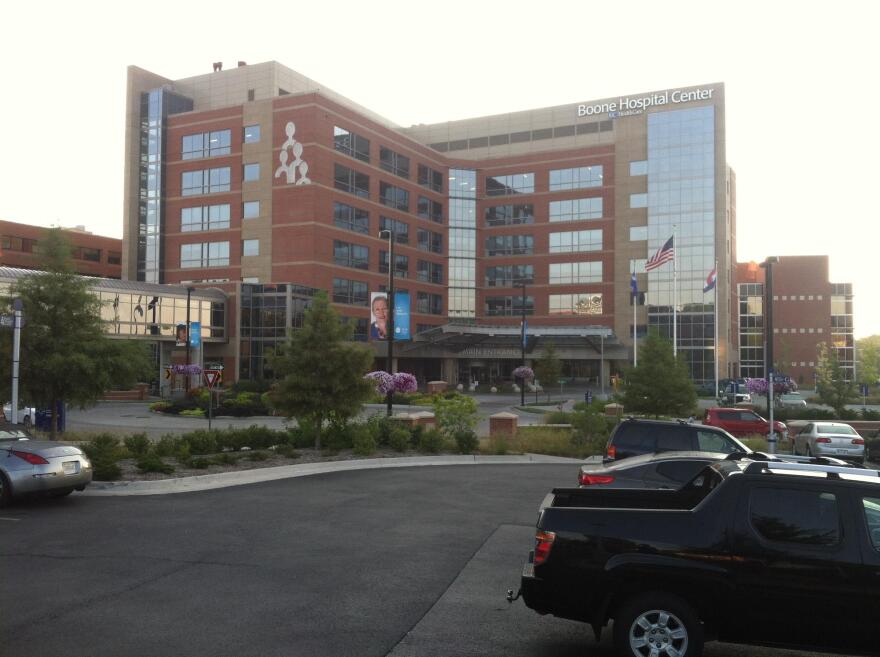This story was produced by Side Effects Public Media, a news collaborative covering public health.
The recent COVID surge was enough to push BJC Healthcare to start deferring some scheduled procedures at hospitals in the St. Louis area. In Columbia, where the University of Missouri is located, hospitals aren’t there yet.
But it’s not out of the question.
Dr. Robin Blount is the chief medical officer at Boone Hospital in Columbia. She says when it comes to ensuring there's enough capacity to care for patients, everything is on the table.
“It has to do with staffing, capacity, number of beds, ICU needs, etc," Blount said. "We look at that and say, Can this is this something that could possibly be put off for six to eight weeks.”
As of Thursday, Boone had 47 COVID-19 inpatients. Blount says the hospital is adjusting, but the numbers are unprecedented.
The hospital set up a dedicated COVID-19 unit in September, and she says that met demand for the past month and a half. Now, they’re adding more beds. But that requires staff to work those beds, and caring for COVID-19 patients is especially taxing.
“Some of these people are extremely ill, extended periods of time in the ICU, and our staff are very devoted to helping them,” Blount explained.
Long stays in intensive care units have become a characteristic of serious COVID-19 cases, and that stresses capacity. Blount says Boone has had to look to St. Louis and Kansas City — cities about two hours away — to find beds for some patients.
It’s not just Boone having difficulty, though. Boone recently issued a joint statement alongside MU Health Care and Harry S. Truman Memorial Veterans' Hospital announcing they were implementing surge plans.
Dr. Mark Wakefield is the Associate Chief Medical Officer at MU Health. He says it doesn't matter how many beds are have available if there aren't people to work them. “That has not happened to us yet, as far as I know, but it definitely is a potential,” Wakfield said.
Wakefield says staffing is key to the system’s flexibility. MU Health can convert beds to treat COVID-19 patients as needed, but coordinating and managing personnel to care for those patients is the hard part. In the spring, when MU Health suspended elective surgeries, it was to conserve protective equipment PPE, but Wakefield says the system has built up its supply since then.
“I anticipate if that’s necessary, we’ll not necessarily do a complete stop like we did in March," Wakefield explained. "We’ll have more capacity to do a graduated response; decide which cases can be deferred safely."

Wakefield anticipates COVID admissions will continue to increase. While only a fifth of patients hospitalized in Boone County are county residents, the county has set records for new cases in the past week. Hospitalizations typically follow as close as 10 days.
When it comes to what’s driving the recent spike in cases, health officials point to small gatherings and complacency. Ashton Day is a health educator with the local health department.
“From the case investigation we have done it suggests people are gathering more with friends and family," she said. "You kind of let your guard down”
Day says her department has seen an increase in school-age children testing positive for COVID. Columbia’s school board has voted to switch back to online classes later this month.
Despite the increase in cases, Missouri Governor Mike Parson has issued relatively few COVID restrictions. There is no statewide mask mandate, for example.
Entering the holiday season, the broader challenge — getting people to take the virus seriously — will remain.





